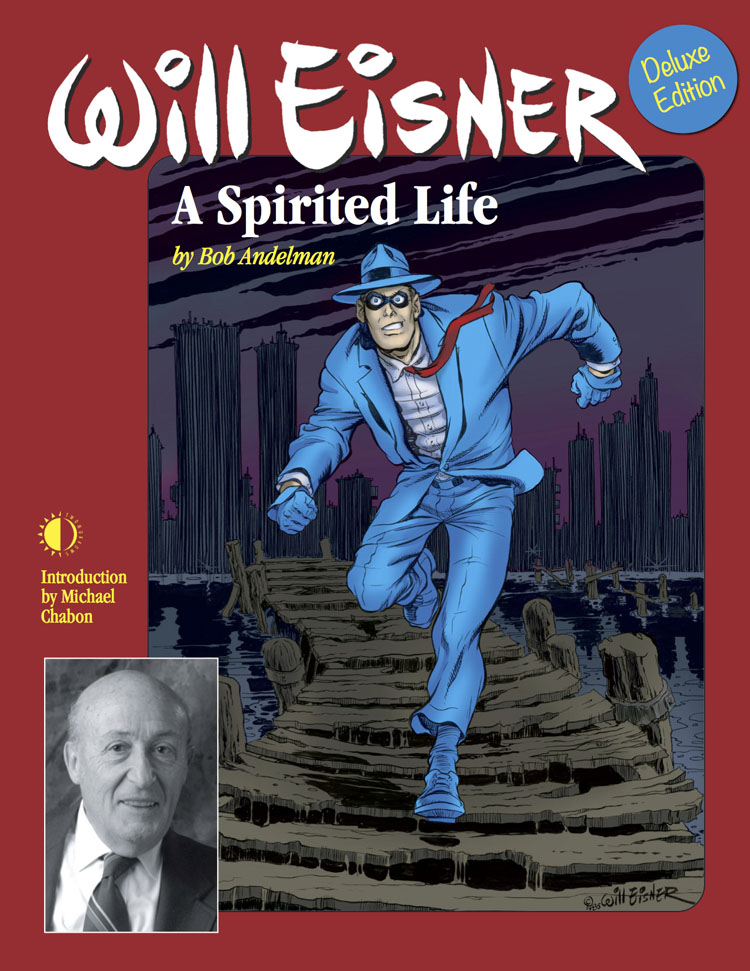Here’s an excerpt:
Richard: Why did you decide to write “Will Eisner: A Spirited Life”?
Bob: I had the good fortune to be introduced to one of Mr. Eisner’s literary agents, Judy Hansen, through my own agent at the time, Kevin Lang. Kevin said, “Judy represents journalists and comics people; maybe you two should talk about a project!”
At the time, Judy and her partner, Denis Kitchen, were trying to get Will to write an autobiography. As I understood it, they wanted someone who was familiar with comics, but was a professional journalist and not a rabid fanboy. That described me pretty well. Judy and I hit it off by phone; then Denis interviewed me at a length. Finally, he recommended that Will meet me. We got together for lunch, established an instant rapport, and the project began.
But there was a bump in the road. After I wrote an initial proposal, Will – who was finishing Fagin the Jew at the time and getting more serious about what would become The Plot – called me and said, “I can’t do this. If I spend all my time working on this book, I’ll never do any of my real work.” He suggested an alternative; I should write it as a straight biography – which he would authorize and cooperate fully on. So that’s what we did.
Richard: How did you research the project?
Bob: Everything started with Will. We met in person several times at his office and home, usually for two or three days at a time. That gave me insight into his daily life and routine, as well as the opportunity to spend time with his brother, Pete – his office manager and best friend – and his lovely wife, Ann, with whom he was so very in love.
Will opened up his entire life to me. I was given free access to his book shelves and office files – even his photocopier, to make copies of anything I found of interest. I even brought my scanner to his office and home and scanner art right off the walls. He opened up books of family photos and I stayed up late one night scanning dozens of photos into my computer. (I later provided CDs with these images to the Cartoon Art Museum.) We also talked by phone at least once a week, usually for an hour or so at a time.
One day, I asked about interviewing friends, fans, and co-workers and he handed me his personal address book and said, “Call anyone you like.” There were no rules, no conditions; this is how I enticed Neal Adams and Michael Chabon to each write an introduction to the book. I think I interviewed between 50 and 75 people in addition to the Eisners.
Will also told the curator of the Cartoon Art Museum at The Ohio State University to give me complete access to his personal archives there, so I spent three days there pouring through everything I could, photocopying, scanning, and taking notes. Denis Kitchen invited me into his home in Massachusetts and I grilled him about the business side of Will’s modern life and photocopied correspondence and much more. I also spent a day at Will’s side when he visited the Ringling School of Art & Design in Sarasota, Florida, lecturing students and going one-on-one with them for a portfolio review. The drive back to the airport in Tampa that afternoon was a highlight of our time together for me — a wide-ranging, free-wheeling conversation.

